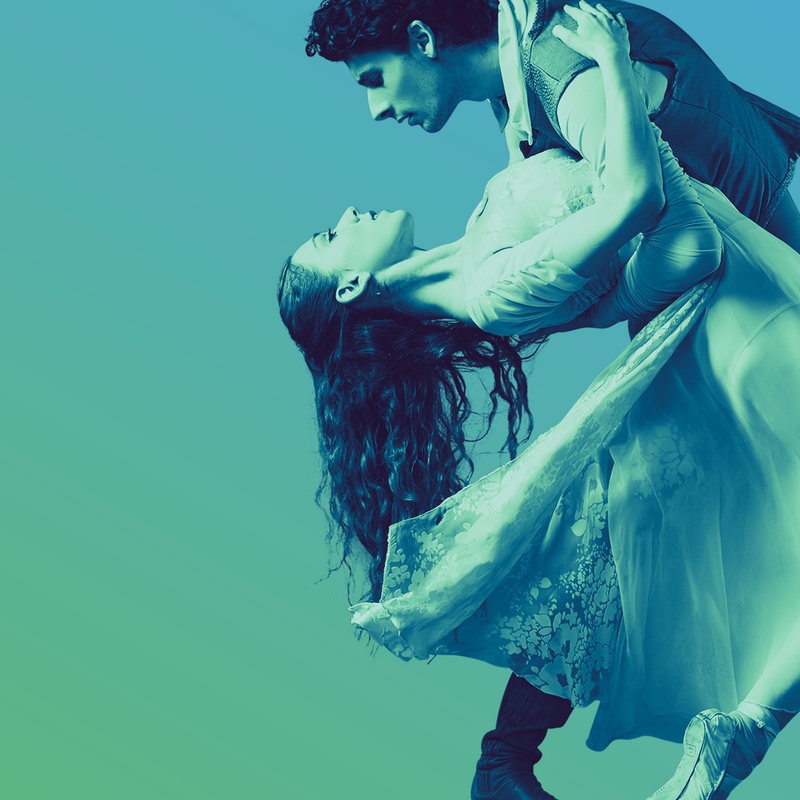Dorothy Gunther Pugh on Romeo & Juliet
Being tasked with writing my first blog post ever, and it being about our “Romeo & Juliet,” first choreographed by Steven McMahon in 2011 at my request, I find myself both grateful and challenged. It has been such a long time since I was a college English major, with time and guidance aplenty to research and write, and to be edited and helped along by wonderful professors. So, in part, I am apologizing for what follows in only briefly touching upon something that is really of great magnitude. Additionally, in the many years following my graduation, I have had countless people profoundly affect and touch my life, while the world around me has never stopped unfolding stories of profound meaning, which circle back to all of us over and over.
One of those countless people is Steven, whom I recognized almost instantaneously at his then young age, was a deep old soul with a big, vulnerable heart and important gifts of human understanding and an ever-present thirst to know more. Perhaps his humble attentiveness when dancing with his female partners was a first indication that he could be up to the monumental task of choreographing a ballet based on one of these profound stories, in a play written by a quintessential writer in the English language, and whose “first assured success as a writer of tragedy” was this play. (my old copy of The Complete Works of Shakespeare, edited by Irving Ribner and George Lyman Kittredge.)
“Romeo & Juliet” is astounding in its long life and relevance, as is its play’s author, the immortal giant William Shakespeare. So briefly, I will address one main reason why, for we mere mortals in our brief time on this planet, seem to turn to it again and again. I am so grateful that Steven was able to construct a heartfelt, poignant, unselfish human rendering of this story in ballet form, no small feat for any choreographer.
Why is this story timeless, so perfect for our time, every time we see an attentive, deeply understood, and appreciative production of it? I believe the Prologue, recited by the Chorus, succinctly sums up the why even before it is laid out for us to enter:
“…where civil blood makes civil hands unclean… …a pair of star-crossed lovers take their life; …doth with their death bury their parents’ strife…”
We continue to revisit this story in part because, many centuries after the tragedy’s telling, we have yet to end the strife caused by our fear of others unlike us, who disagree with us, who have angered us. And this anger, if stoked and abetted, can yield terrible results, often as acts of violence, and it is our children, and generations after them, who continue to suffer, and too often die, because of this perpetration of evil. We watch life giving qualities, like Romeo & Juliet’s innocent love, whose chance of making life better for their community, be buried. Romeo & Juliet chose the joyous power of love over the power of their elders’ need to be right, need to be better than, need to hold on to historical notions of enmity for others, need to perpetuate a sort of standard accepted practice of being ready to resent and then hurt the other. Romeo & Juliet‘s choice of love brought to them light, joy, and comfort, as they took adult steps forward which their world’s adults refused to take. They were, in effect, sacrificed so that the grown-ups could actually grow up. I think it is quite apparent that as the human family, we still have so much work to do in order that one day, we finally may know that no more innocent life will be sacrificed on the altar of “righteousness,” for wanting to be the dictator of who wins and who loses, for choosing me over you and me over us. Because, in the end, everyone loses in that story, a story of lack of self-perception and self-knowledge, a story of unwillingness to perceive, know, and try to understand others, a story that snuffs out love, possibility, and a future. Perhaps Shakespeare, through his chorus, is begging us to be better, before it’s too late.
The Chorus, the Group, the “We the People,” are all on the stage, in the audience, in the world we live in. Read into one’s self, find your heart and mind, give them to another, and accept another’s. We often must live without knowing, without certainty, but living without loving, without caring, is deadening.
In his Sonnet #10, Shakespeare asks, “Shall hate be fairer lodged than gentle love?” From the deepest part of my heart, I hope the answer is no! There is goodness to be found, goodness to be loved, and goodness to be nurtured, goodness to be protected, all around us, known and unknown. A young dancer and choreographer, Steven McMahon, knew it. Romeo & Juliet knew it. It swept them off their feet. Raised to not respect or welcome the other, they leapt beyond those barriers. Somewhere within this love they knew was the beauty-in-life they wanted to live in together.
For our lifetime, I hope we will, more and more, and before it’s too late, choose to do all we can together to “lodge gentle love,” first and foremost.
Dorothy Gunther Pugh
CEO/founding artistic director
December, 2019




